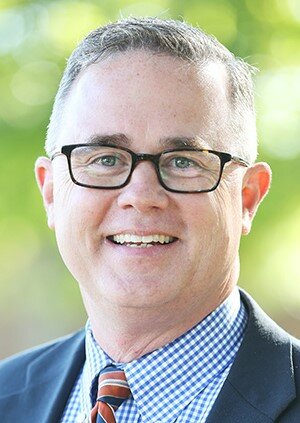OPINION: Switching religions means leaving one and finding another
By Todd E. Brady
Guest columnist
Axios.com recently reported that a rising number of Americans are switching religions. They found that about a quarter of Americans who used to follow different religious traditions or denominations have made a switch.
From their research, they found that 56% of American adults did so because they stopped believing in the religion’s teachings. 30% cited negative teachings about or treatment of LGBTQ+ people. 27% gave scandals among religious leaders as a reason. 17% said their church had become too political.
We need to remember that when a “switch” is made, there is a switch from something to something. The question this most recent report begs is, “From what and to what are Americans switching?”
More Americans also are turning away from Christianity and are seeing themselves as unaffiliated with any religion or as religious "nones.” The “None” category was identified several years ago by Pew Research for those who did not identify with any religion.
Many Americans seem to be switching from identification as a religious something to identification as a religious nothing.
There is a difference between the essence of a religion and the expression of a religion. For those of us who are Christians, Christ is the Essence, but each of us expresses our religion differently. The essence of religion is the truth believed. It’s the object of belief or the reason for believing. Expression is the way religion may be demonstrated. For us, Christ is Who we believe. Religion could be considered the way we show that belief.
Some of us use musical instruments. Some of us do not. Some gather formally. Others gather informally. Some observe the Lord’s Supper/Communion weekly. Some monthly. Some quarterly. Some have church services once a week. Some meet more frequently. The point is that for Christians, the Essence is the same—Christ, while the expression may be different or change over time.
This is why the Apostle Paul wrote the letter to the Colossians. They were focused on the expression of religion rather than the Essence. For them, religion was about eating and not eating certain things, touching and not touching certain things, attending festivals, observing certain holidays, and more, but Paul told them that each of those things were “a mere shadow of what is to come; but the substance belongs to Christ.” (2:17) Paul proclaimed Christ, not a religion. This is why he told the Colossians, “Him we proclaim, warning everyone and teaching everyone with all wisdom, that we may present everyone mature in Christ. (1:28)
In the Gospel of John, we read that many were following Jesus but that at one point they turned away and no longer followed him. They made a switch. When the crowd turned and walked away, Jesus asked the 12 disciples if they wanted to leave, too. Peter spoke up and answered, “Lord, to whom shall we go? You have the words of eternal life, and we have believed and have come to know, that you are the Holy One of God. (3:68-69)
Peter got it right. And while he probably had questions about what everyone else was doing and even about Jesus’ ministry strategy, he remained. For him, it was about the Essence of Religion—Christ, not a particular expression. He knew that any “switch away from” involved a “switch to,” and he realized that any “switch to” would be to something that was away from the Essence.
Todd E. Brady is vice president for university ministries at Union University. Write to him at 1050 Union University Drive, Jackson TN 38305.






